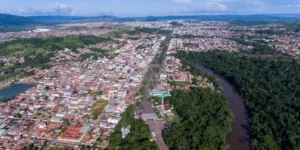The government bowed to the obvious and went back on the decision it had made just four days earlier, despite the importance and magnitude of the matter. The Ministry of Mines and Energy revoked its own ordinance, which defined the guidelines for holding the auction for the São Luiz do Tapajós hydroelectric plant, designed for 8,000 megawatts. The bidding process had been scheduled for December 15.
The ministry gave its justification: the revocation was necessary to adapt the anthropological studies related to indigenous populations, despite the fact that the Technical and Economic Feasibility Study and the EIA/RIMA for the plant had already been completed.
When the government announced, at the end of last week, that it would hold the bidding process within just two months, skepticism was widespread. In order for the project to begin, it is necessary to obtain environmental licensing, which is already complex in itself, and is even more complicated because in the Tapajós valley, between Pará and Mato Grosso, the government intends to use the platform-plant concept for the first time. This new approach would eliminate the need to build a residential village near the river dam, reducing the ecological impact and social damage.
In addition to technological innovation, which to this day remains an unknown for those who follow it from the outside, there is another factor: the resistance shown so far by the indigenous people, led by the Munduruku.
The president of Thymos Energia, João Carlos Mello, told the Canal Energia website that the licensing “will present many environmental conditions, which should increase the cost of the project”. However, he praised the São Luiz plant, which he believes is better than the Belo Monte plant in Xingu because it will operate with a waterfall and not a run-of-river plant, with a small reservoir. Thus, the firm capacity will be greater than in Belo Monte, where the proportion is 40% in relation to the nominal power generation capacity. In the summer, it loses power.
The request for prior licensing of the Tapajós hydroelectric plant was filed with Ibama at the end of July. In order for the bidding to be held on December 15, the environmental licensing would have to be approved by November 15, one month before the public tender notice for the plant was released. The same request for Belo Monte was submitted in March 2009. The document was issued by Ibama almost a year later, in February 2010.
Why so much haste in the Tapajós case? Perhaps it was an attempt to create a fait accompli in the event that Marina Silva was elected president of the republic. As Lula’s environment minister, Marina was against not only the hydroelectric projects, but especially against their accelerated processing by the government’s environmental authority. As president, she could completely change the course of the São Luiz hydroelectric plant.
If that was the goal, its sponsors had to accept the evidence that the licensing would not be issued in time. And, if it were, the price to pay for this slow process could be very high, exposing the project to more criticism than it has already received. Hence the retreat. The provisional outcome is the best for everyone. The project is so large that it recommends more parsimony in the use of time – and also in the power to create faits accompli at the expense of reason.








